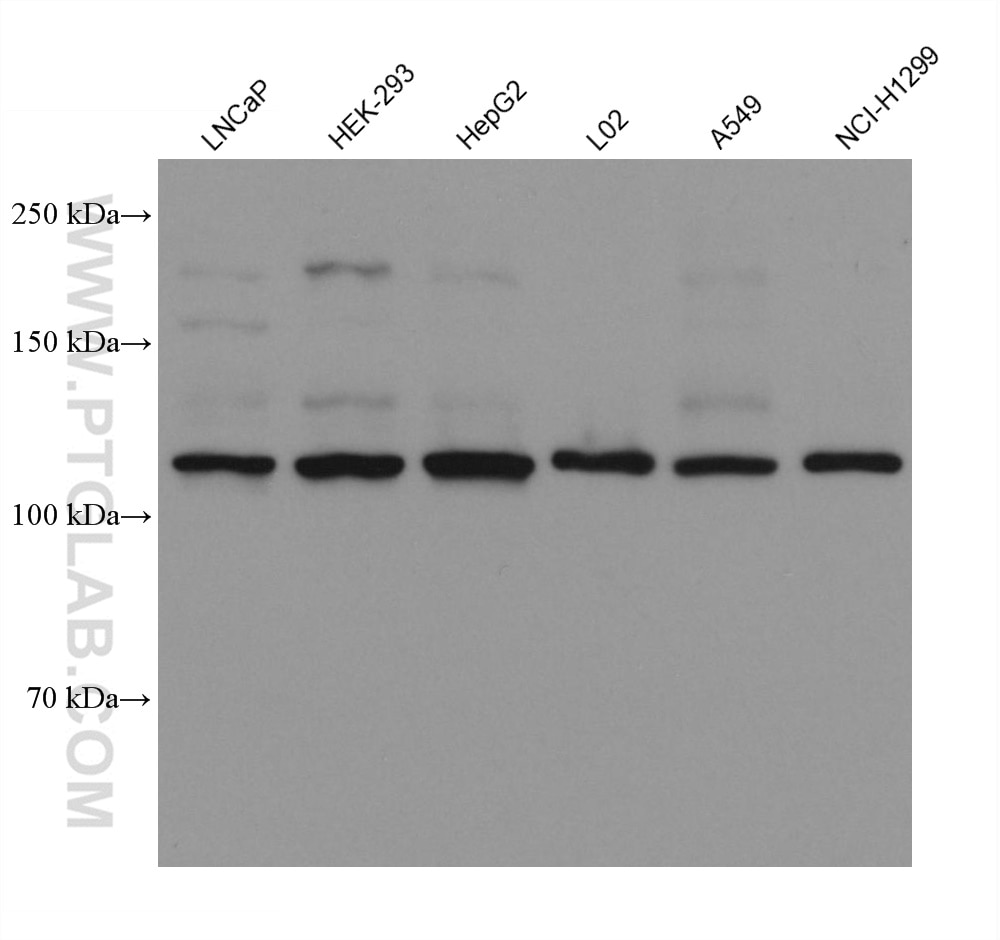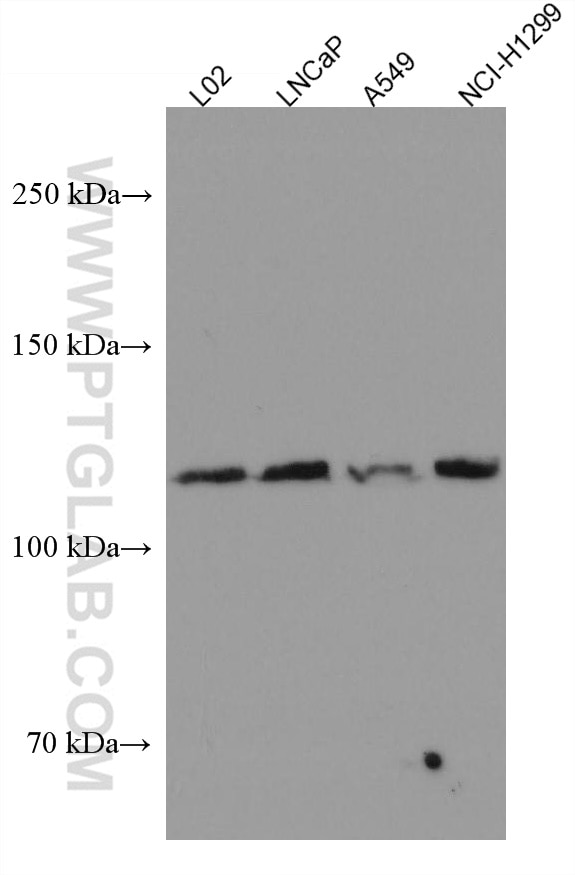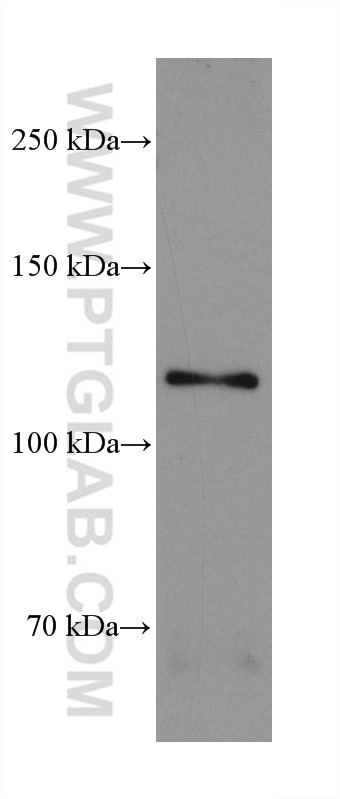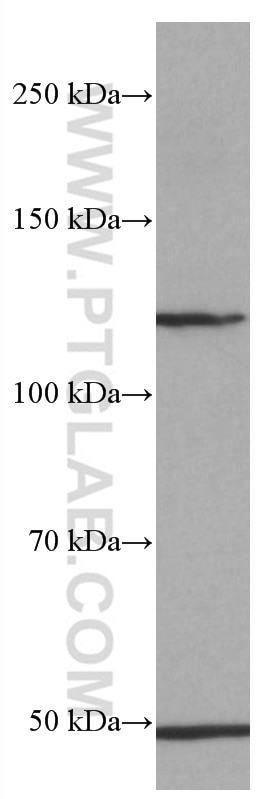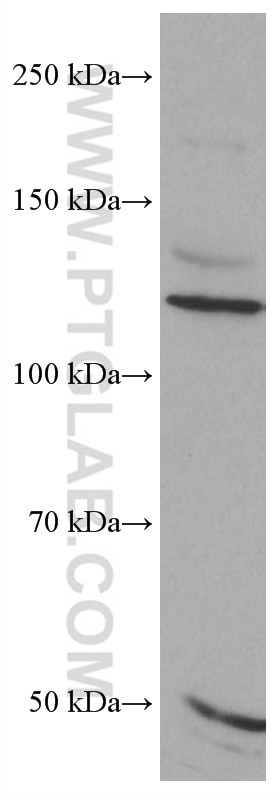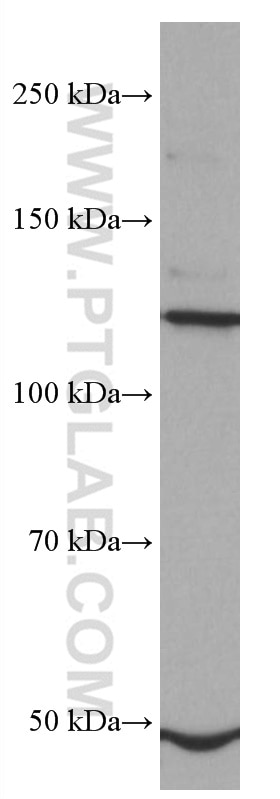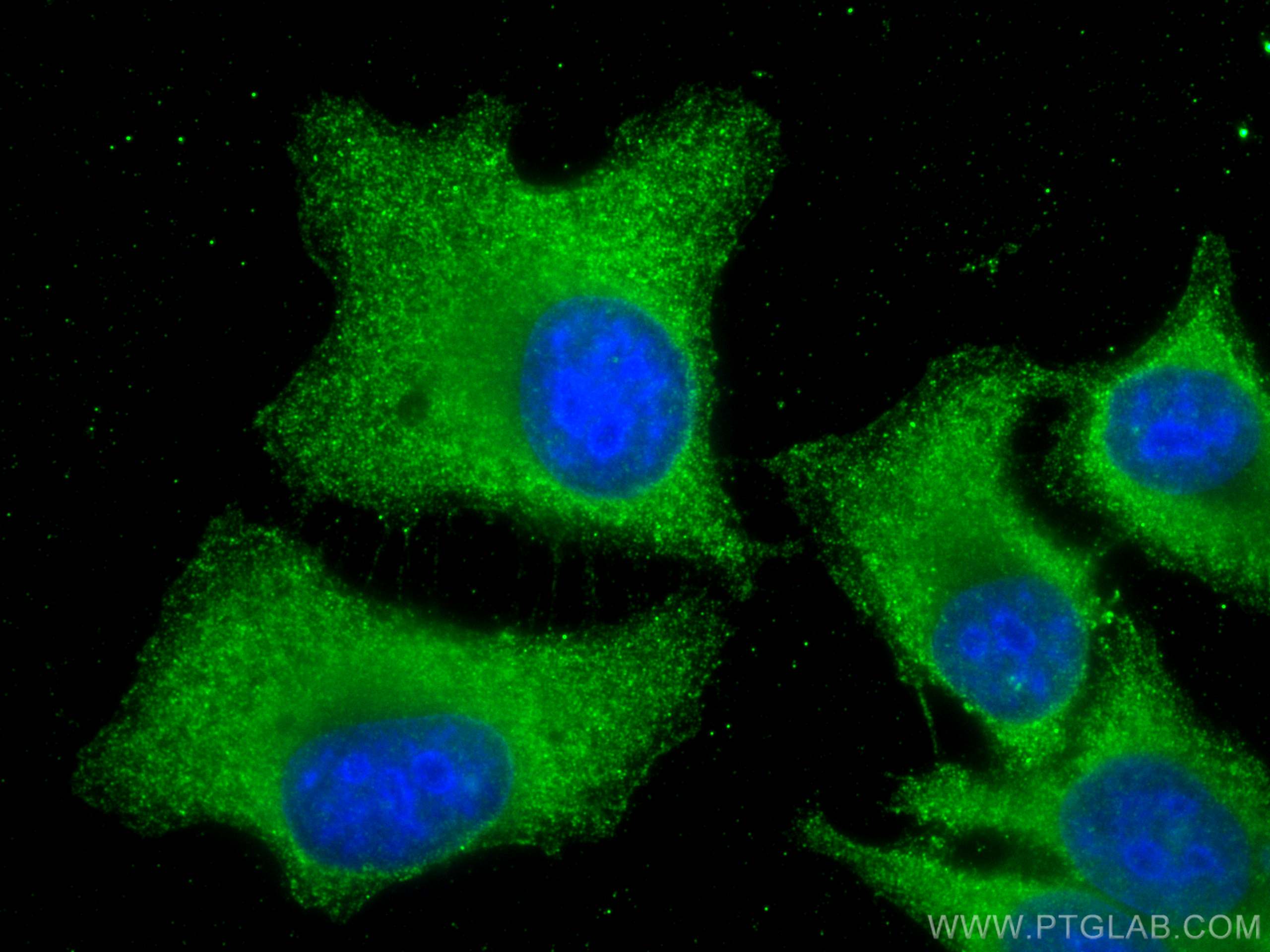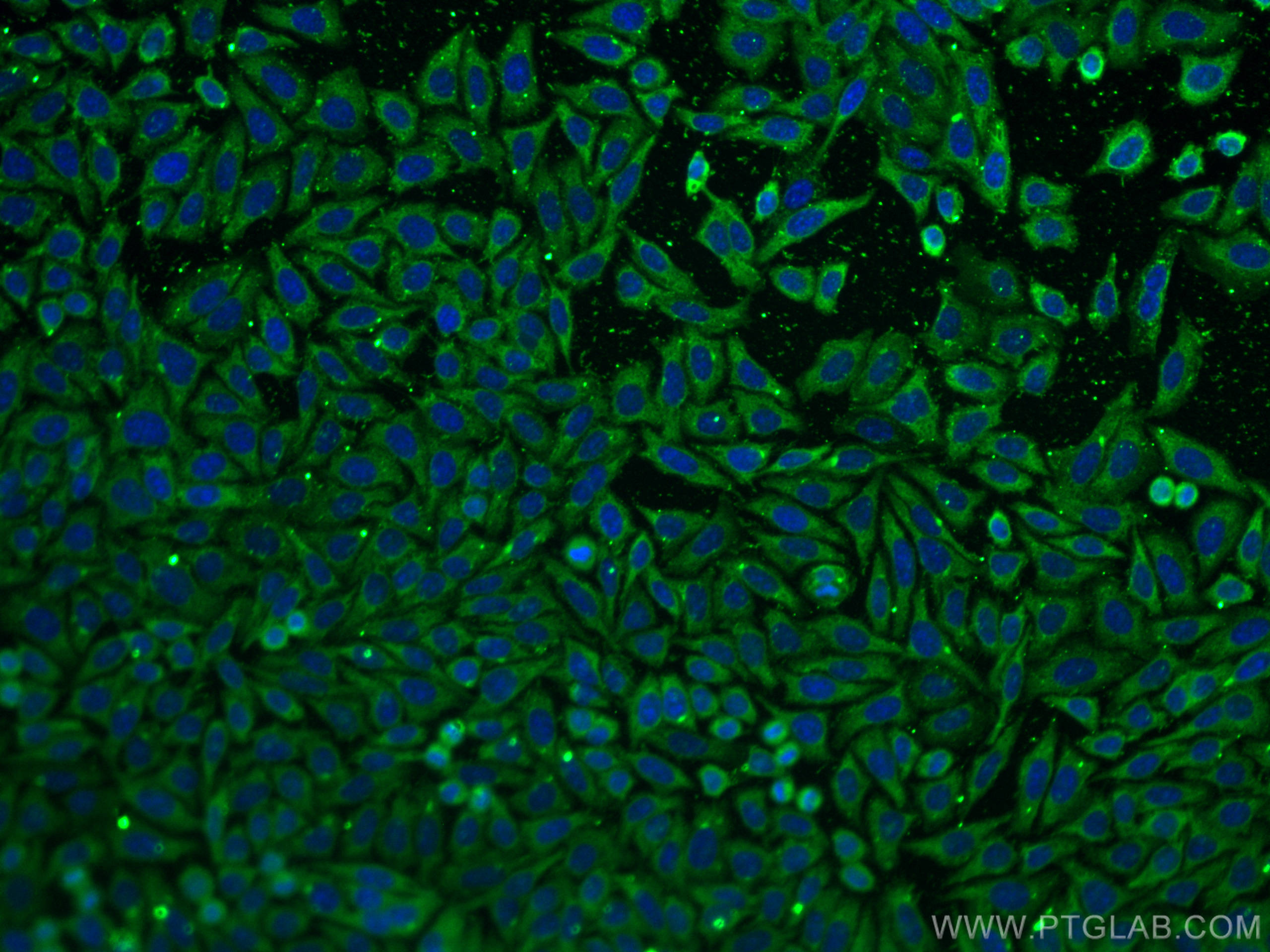- Phare
- Validé par KD/KO
Anticorps Monoclonal anti-FGFR3
FGFR3 Monoclonal Antibody for WB, IF/ICC, ELISA
Hôte / Isotype
Mouse / IgG1
Réactivité testée
Humain et plus (1)
Applications
WB, IHC, IF/ICC, ELISA
Conjugaison
Non conjugué
CloneNo.
1F3G1
N° de cat : 66954-1-Ig
Synonymes
Galerie de données de validation
Applications testées
| Résultats positifs en WB | cellules LNCaP, cellules A549, cellules HEK-293, cellules HeLa, cellules HepG2, cellules L02, cellules L-929, cellules NCI-H1299 |
| Résultats positifs en IF/ICC | cellules HepG2, |
Dilution recommandée
| Application | Dilution |
|---|---|
| Western Blot (WB) | WB : 1:5000-1:50000 |
| Immunofluorescence (IF)/ICC | IF/ICC : 1:200-1:800 |
| It is recommended that this reagent should be titrated in each testing system to obtain optimal results. | |
| Sample-dependent, check data in validation data gallery | |
Applications publiées
| KD/KO | See 2 publications below |
| WB | See 10 publications below |
| IHC | See 2 publications below |
| IF | See 2 publications below |
Informations sur le produit
66954-1-Ig cible FGFR3 dans les applications de WB, IHC, IF/ICC, ELISA et montre une réactivité avec des échantillons Humain
| Réactivité | Humain |
| Réactivité citée | Humain, souris |
| Hôte / Isotype | Mouse / IgG1 |
| Clonalité | Monoclonal |
| Type | Anticorps |
| Immunogène | FGFR3 Protéine recombinante Ag26290 |
| Nom complet | fibroblast growth factor receptor 3 |
| Masse moléculaire calculée | 87 kDa |
| Poids moléculaire observé | 125-135 kDa |
| Numéro d’acquisition GenBank | NM_000142 |
| Symbole du gène | FGFR3 |
| Identification du gène (NCBI) | 2261 |
| Conjugaison | Non conjugué |
| Forme | Liquide |
| Méthode de purification | Purification par protéine G |
| Tampon de stockage | PBS with 0.02% sodium azide and 50% glycerol |
| Conditions de stockage | Stocker à -20°C. Stable pendant un an après l'expédition. L'aliquotage n'est pas nécessaire pour le stockage à -20oC Les 20ul contiennent 0,1% de BSA. |
Informations générales
Fibroblast growth factors (FGFs) are polypeptide growth factors involved in a variety of activities including mitogenesis, angiogenesis, and wound healing (PMID: 1847508). The human FGF receptor family, a subfamily of receptor tyrosine kinases (RTKs), comprises of four family members-FGFR1, FGFR2, FGFR3, and FGFR4 (PMID: 23900974). Each receptor contains an extracellular domain with either two or three immunoglobulin-like domains, a transmembrane domain, and a cytoplasmic tyrosine kinase domain. FGFR3 binds acidic and basic fibroblast GH and plays a role in bone development and maintenance. Mutations in the FGFR3 gene lead to craniosynostosis and multiple types of skeletal dysplasia. Due to frequent mutations in certain cancers, the FGFR3 gene has also been associated with tumor progression.
Protocole
| Product Specific Protocols | |
|---|---|
| WB protocol for FGFR3 antibody 66954-1-Ig | Download protocol |
| IF protocol for FGFR3 antibody 66954-1-Ig | Download protocol |
| Standard Protocols | |
|---|---|
| Click here to view our Standard Protocols |
Publications
| Species | Application | Title |
|---|---|---|
Ann Rheum Dis FGFR3 deficiency enhances CXCL12-dependent chemotaxis of macrophages via upregulating CXCR7 and aggravates joint destruction in mice.
| ||
Cells Determination of WWOX Function in Modulating Cellular Pathways Activated by AP-2α and AP-2γ Transcription Factors in Bladder Cancer. | ||
J Exp Clin Cancer Res HDAC7 promotes NSCLC proliferation and metastasis via stabilization by deubiquitinase USP10 and activation of β-catenin-FGF18 pathway. | ||
J Exp Clin Cancer Res Dysregulation and prometastatic function of glycosyltransferase C1GALT1 modulated by cHP1BP3/ miR-1-3p axis in bladder cancer. | ||
Tissue Eng Part A The UC-MSCbFGF/scaffold system accelerates the healing of the uterine full-thickness injury |
Avis
The reviews below have been submitted by verified Proteintech customers who received an incentive for providing their feedback.
FH Clarisse (Verified Customer) (12-12-2022) | This antibody works very well on tissue fixed overnight at 4C with 2% PFA. No antigen retrieval required.
|
